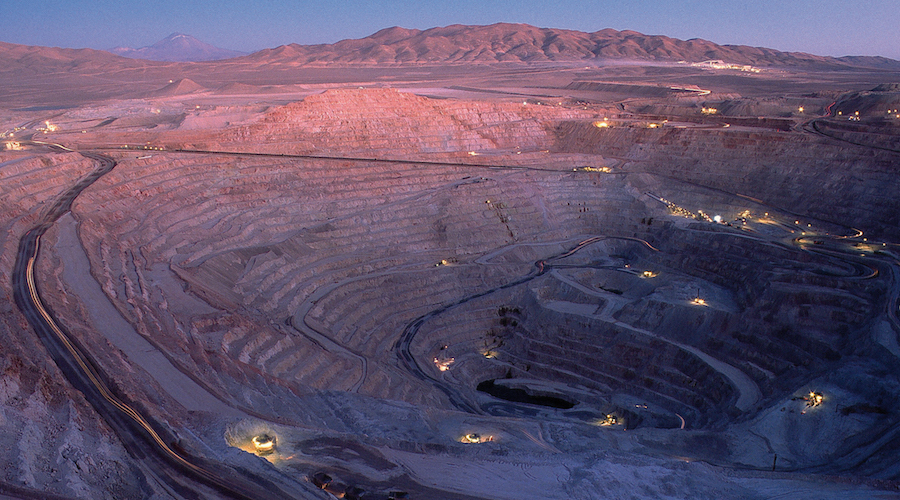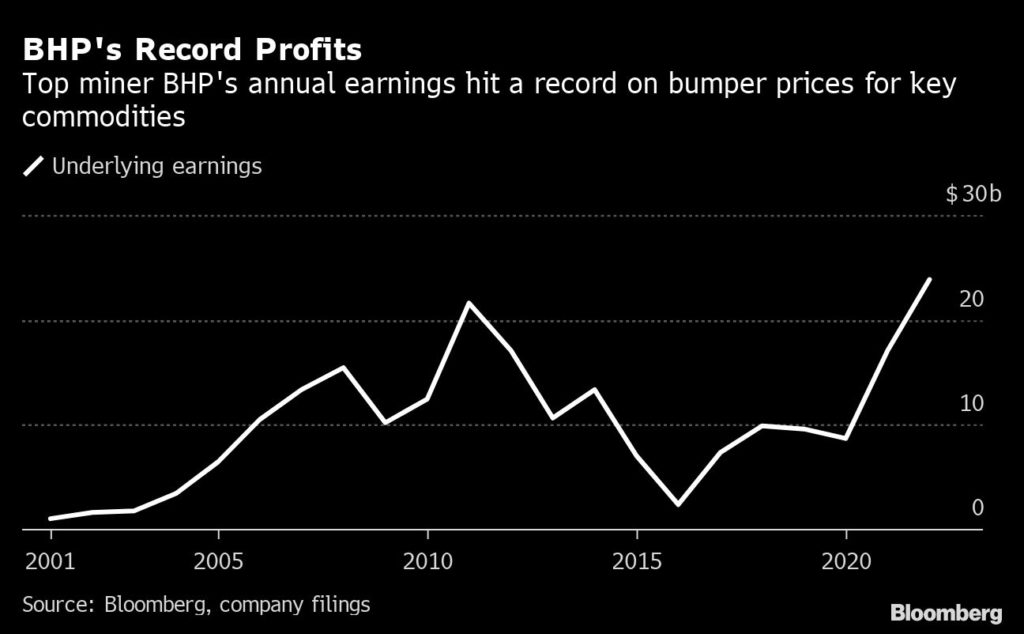BHP hits profit record and sees demand healing in China

BHP Group, the world’s biggest miner, posted its highest ever full-year profit on record commodity prices, and will push ahead with growth options on a stronger demand outlook in China.
The producer will study plans to expand its top-earning iron ore unit to 330 million tons of production a year, and is continuing to assess options to lift volumes in copper and nickel, Melbourne-based BHP said Tuesday in a statement. A giant new potash mine in Canada remains on track to begin out in 2026.
Chief Executive Officer Mike Henry said China’s emergence from the Covid-19 lockdowns would provide a “tailwind” to the global economy, in a counterpoint to jittery sentiment on China following a swath of surprisingly weak data.

“We think that over the next six-to-12 months, China, if anything, is going to provide some stability to global growth and will help offset some of the slowing that we see elsewhere,” Henry said. China typically accounts for more than 60% of BHP’s revenue.
Rival miners have cautioned over a weaker outlook and Rio Tinto Group last month reported a decline in first-half profits and halved its dividend. Gold giant Newmont Mining Corp. and copper producer First Quantum Minerals Ltd. have also warned investors in recent weeks on the impact of inflationary pressures.
Shares rise
BHP’s result was “better than expected”, Goldman Sachs Group Inc. analysts Paul Young and Hugo Nicolaci wrote in a note. But they warned stronger currencies and weaker commodity prices were key downside risks, particularly if China’s property sector does not recover in the next year.
Though BHP will face pressure from a slowdown in advanced economies, higher costs and tighter labor markets, there will be opportunities for low-cost miners as inflation also drives prices higher, the company said. Production costs across major assets rose 13% on Covid-related issues and higher prices of diesel and electricity.
The miner’s shares jumped as much as 5.5% in Sydney trading, the most since January 2021, and were 4.8% higher at A$40.79 as of 1:00 p.m. local time. Iron ore futures in Singapore rose 2.1% to $108.20 a ton.
China’s central bank on Monday cut interest rates as data showed the economy struggling on multiple fronts, and BHP’s comment on prospects there came with some caveats.
Downside risks in China include the possibility of further lockdowns, slowing exports, and continued turbulence in the country’s real estate sector, BHP said. And it noted that the iron ore market — its biggest source of earnings — would likely remain in surplus through this fiscal year.
Electric metals
The producer is aiming to seize on any pressure on competitors to add metals tied to clean energy and electric vehicle supply chains, including copper and nickel. Copper miner OZ Minerals Ltd. — which rejected a BHP takeover approach — was a “nice to have, not a must have”, Henry told media on Tuesday.
BHP will continue to produce high quality metallurgical coal, Henry said, but plans for new coal mines in Queensland, Australia, are on hold after the state government increased royalty taxes. He also said green steel technology, including using hydrogen rather than metallurgical coal, was still “decades” away from becoming commercial.
Total underlying earnings were $23.8 billion in the year to June 30, beating an average analyst forecast of $21.6 billion, and the highest since the current company was created in a 2001 merger. The producer will pay a record final dividend of $3.25 a share.
(By James Fernyhough, with assistance from Liz Ng)
{{ commodity.name }}
{{ post.title }}
{{ post.date }}




Comments
gerald lohuis
BHP IS VERY WORTHWHILE HOLDING